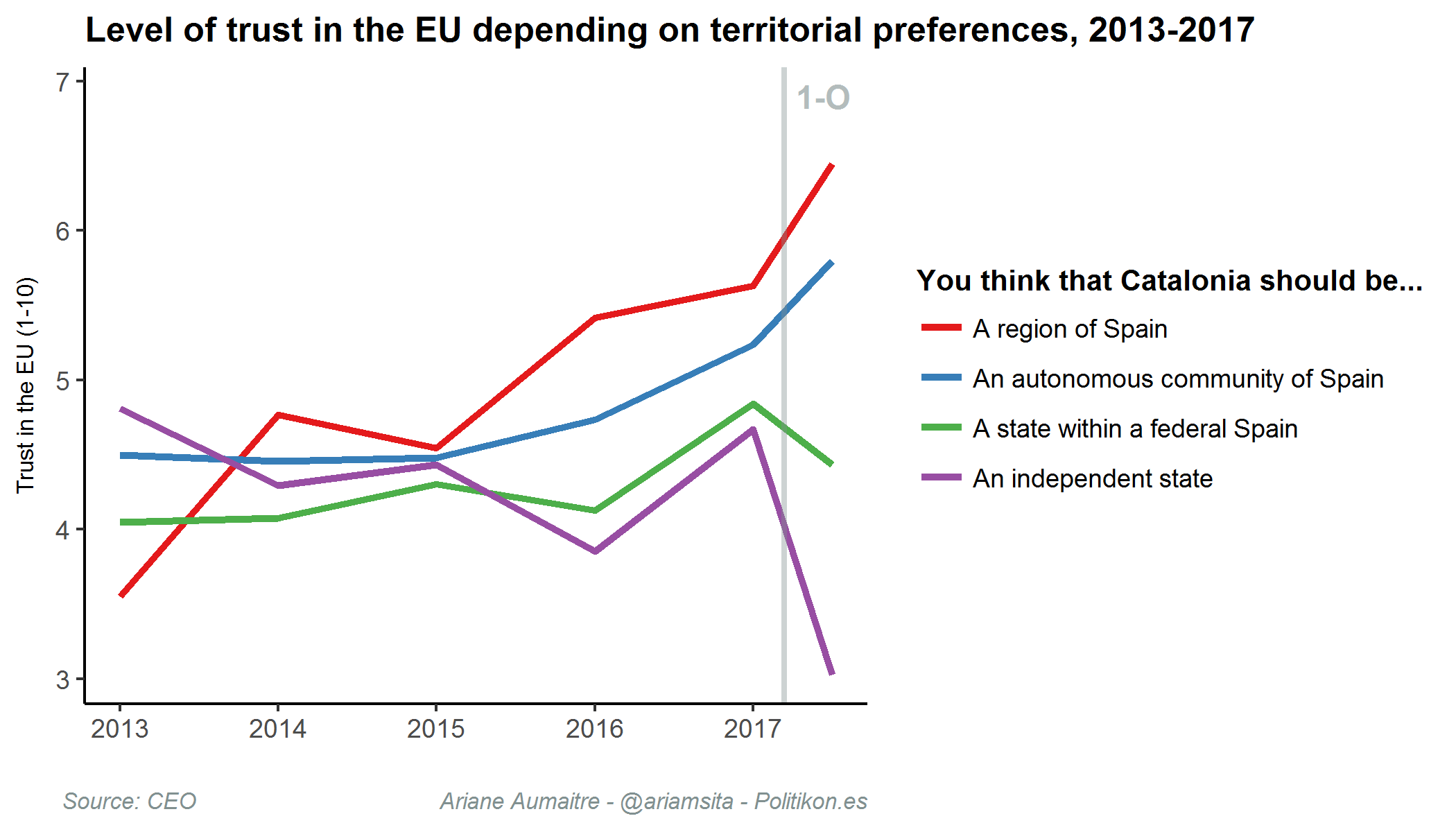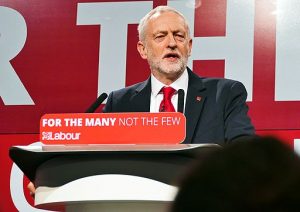“Is this the Europe that you invite us to build, with a government in prison? How long are you, Europe, going to look away from this coup, from the abuse of our colleagues, who are elected representatives, in prison?” This is how Carles Puigdemont, former president of Catalonia, addressed Presidents Juncker and Tajani on Twitter, openly complaining about the position that the EU has taken on the Catalan crisis.
The (lack of) support coming from the EU has been a key component in framing the political positions of both independentists and unionists during the events of the last months in Catalonia. For the Spanish government, EU support has been fundamental in legitimizing its actions. On the secessionist side, efforts have been made to generate favourable involvement of EU institutions, with demands ranging from mediation requests to the active involvement of the EU to protect fundamental rights. The clearest example of this pattern is the move of the former Catalan government to Brussels with the aim of internationalizing the situation from the European capital.
Nevertheless, and in spite of the continuous demands coming from the independentists, the EU has firmly backed the Spanish government, not showing any of support to the secessionist cause. In such context, we could ask ourselves whether this situation is affecting the attitudes of Catalan citizens on the EU. In other words: could this lack of European support undermine citizens’ perceptions of the EU? In this article, I will try to find a preliminary answer to this question, by analysing survey data coming from the last Public Opinion Barometer from the Catalan Opinion Studies Centre (CEO).
The situation in Catalonia and citizens trust in the EU
One approach is to analyse the evolution of Catalan citizens’ trust in the EU, breaking it down by citizens’ territorial preferences. This is shown in the following graph:

The first years of the series do not show a clear pattern in the relationship between trust and territorial preferences. In 2015, all groups show a similar level of trust, but the lines start to diverge from each other in 2016, a tendency that is accentuated in 2017. The 1st of October events, located between the two 2017 surveys (the first one from July and the second one from late October) appear to show an important gap in trust opening up among the independentists.




 Immigration is going to be the political battleground of the next Italian general elections due in 2018. Virtually all major political leaders have hardened their position on borders protection following the new migration crisis in the Mediterranean. Austerity policies and lack of democracy in the EU integration process were the main concerns during the European elections campaign three years ago. Identity issue is now deepening Italian disaffection with Europe by boosting a patriotic rhetoric promoted by both right-wing and left-wing parties.
Immigration is going to be the political battleground of the next Italian general elections due in 2018. Virtually all major political leaders have hardened their position on borders protection following the new migration crisis in the Mediterranean. Austerity policies and lack of democracy in the EU integration process were the main concerns during the European elections campaign three years ago. Identity issue is now deepening Italian disaffection with Europe by boosting a patriotic rhetoric promoted by both right-wing and left-wing parties. So far, for many people, the experience of Brexit appears to be one of real individual anxiety and pain set against a prospective, and increasingly unlikely, collective gain. This is the case for both non-British EU citizens resident in the UK, and the many British EU citizens who cherish and benefit from that extra layer of democratic citizenship, whether resident in the UK or elsewhere in the EU. It is highly unusual for a liberal democracy, in peacetime, to attempt to remove so many rights from so many people, including its own citizens, so rapidly. But that is exactly what appears to be happening, and it seems likely to have a damaging and polarising effect on many individuals’ sense of identity.
So far, for many people, the experience of Brexit appears to be one of real individual anxiety and pain set against a prospective, and increasingly unlikely, collective gain. This is the case for both non-British EU citizens resident in the UK, and the many British EU citizens who cherish and benefit from that extra layer of democratic citizenship, whether resident in the UK or elsewhere in the EU. It is highly unusual for a liberal democracy, in peacetime, to attempt to remove so many rights from so many people, including its own citizens, so rapidly. But that is exactly what appears to be happening, and it seems likely to have a damaging and polarising effect on many individuals’ sense of identity. It is plain, and painful, to see: Europe’s existential crisis, which broke out almost eight years ago, far from gradually finding its solution, is worsening month by month. Not without a certain amount of irony, the disintegration of the “ever closer Union” imagined by the Treaty of Rome, took place, with the UK formally triggering Article 50, only days after the pompous celebration for the 60th anniversary of that very same Treaty.
It is plain, and painful, to see: Europe’s existential crisis, which broke out almost eight years ago, far from gradually finding its solution, is worsening month by month. Not without a certain amount of irony, the disintegration of the “ever closer Union” imagined by the Treaty of Rome, took place, with the UK formally triggering Article 50, only days after the pompous celebration for the 60th anniversary of that very same Treaty. On 9 June 2017, the Catalan government announced a self-determination referendum to be held on 1 October 2017. Two days later, next to a big banner with the slogan ‘Love Democracy’ and in front of 40,000 people, Manchester City’s manager Josep Guardiola read the official pro-independence
On 9 June 2017, the Catalan government announced a self-determination referendum to be held on 1 October 2017. Two days later, next to a big banner with the slogan ‘Love Democracy’ and in front of 40,000 people, Manchester City’s manager Josep Guardiola read the official pro-independence 

